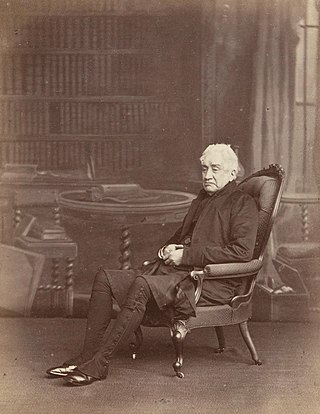Related Research Articles

Richard Hurd was an English divine and writer, and bishop of Worcester.

Lieutenant-General John Manners, Marquess of Granby, was a British soldier and the eldest son of the 3rd Duke of Rutland. As he did not outlive his father and inherit the dukedom, he was known by his father's subsidiary title, Marquess of Granby.

Samuel Horsley was a British churchman, bishop of Rochester from 1793. He was also well versed in physics and mathematics, on which he wrote a number of papers and thus was elected a Fellow of the Royal Society in 1767; and secretary in 1773, but, in consequence of a difference with the president he withdrew in 1784.

Charles Manners, 4th Duke of Rutland, KG, PC was a British politician and nobleman, the eldest legitimate son of John Manners, Marquess of Granby. He was styled Lord Roos from 1760 until 1770, and Marquess of Granby from 1770 until 1779.

Edmund Law was a priest in the Church of England. He served as Master of Peterhouse, Cambridge, as Knightbridge Professor of Philosophy in the University of Cambridge from 1764 to 1769, and as bishop of Carlisle from 1768 to 1787.
Captain George Manners was a British soldier and politician, the illegitimate son of John Manners, Marquess of Granby and Ann Mompesson.

Zachary Pearce, sometimes known as Zachariah, was an English Bishop of Bangor and Bishop of Rochester. He was a controversialist and a notable early critical writer defending John Milton, attacking Richard Bentley's 1732 edition of Paradise Lost the following year.

John Lonsdale was an English clergyman, who was the third Principal of King's College, London, and later served as Bishop of Lichfield.
Anthony Wotton was an English clergyman and controversialist, of Puritan views. He was the first Gresham Professor of Divinity. Christopher Hill describes him as a Modernist and Ramist.

Samuel Bradford was an English churchman and whig, bishop successively of Carlisle and Rochester.
Rowland Meyrick (Merrick) (1505–1566) was a Welsh bishop of Bangor.

Matthias Mawson was an English clergyman and academic who served as Master of Corpus Christi College, Cambridge and subsequently as Bishop of Llandaff, Bishop of Chichester, and Bishop of Ely.

Robert Grove (1634–1696) was an English Bishop of Chichester.
Francis Hare (1671–1740) was an English churchman and classical scholar, bishop of St Asaph from 1727 and bishop of Chichester from 1731.

Samuel Hallifax or Halifax (1733–1790) was an English churchman and academic, holder of several chairs at Cambridge and was successively Bishop of Gloucester (1781–1789) and Bishop of St Asaph (1789–1790).

William Cole, was a Cambridgeshire clergyman and antiquary, known for his extensive manuscript collections on the history of Cambridgeshire and of Buckinghamshire.
Jeffery Ekins D.D. was an English churchman, Dean of Carlisle Cathedral from 1782.
Thomas Davies (1511?–1573) was a Welsh clergyman, Bishop of St Asaph from 1561 to 1573.

Edward Weston (1703–1770) was an English didactic writer and politician.

William Robertson (1705–1783) was an Irish clergyman, known as a theological writer and schoolmaster. Theophilus Lindsey wrote of Robertson as "the father of unitarian nonconformity".
References
 This article incorporates text from a publication now in the public domain : "Ewer, John". Dictionary of National Biography . London: Smith, Elder & Co. 1885–1900.
This article incorporates text from a publication now in the public domain : "Ewer, John". Dictionary of National Biography . London: Smith, Elder & Co. 1885–1900.